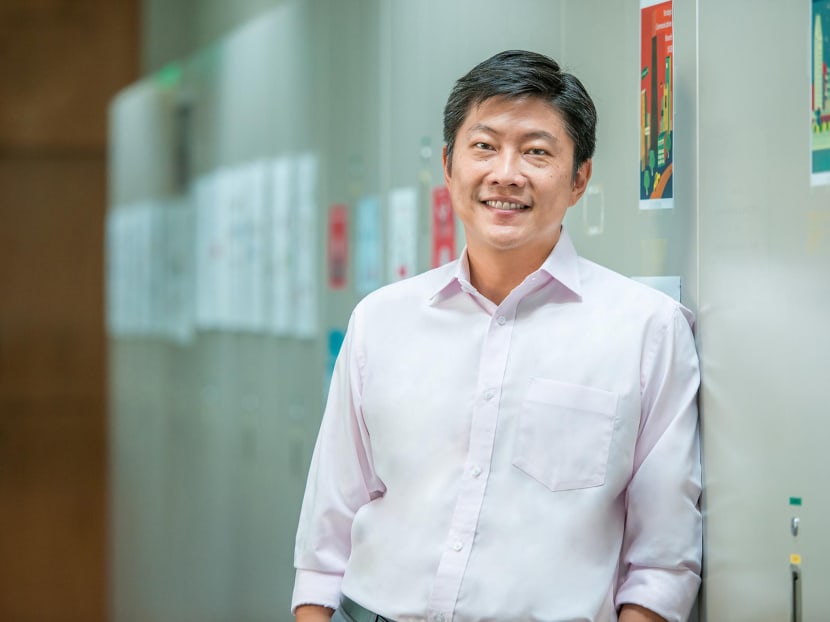MOE extends compulsory education to children with special needs
SINGAPORE — From 2019, children with moderate to severe special needs will have to attend government-funded Special Education (Sped) schools, with the Compulsory Education Act to be extended to this group, more than four years after an expert panel recommended doing so.

Minister of Education (Schools) Ng Chee Meng, who announced that the Education Ministry is extending compulsory education to all children – including those with moderate to severe special needs – from 2019. TODAY file photo
SINGAPORE — From 2019, children with moderate to severe special needs will have to attend government-funded Special Education (Sped) schools, with the Compulsory Education Act to be extended to this group, more than four years after an expert panel recommended doing so.
Calling it an “important milestone in Singapore’s drive towards national inclusiveness”, Education Minister (Schools) Ng Chee Meng, who announced the move on Friday (Nov 4), said: “This is a reaffirmation that every child matters, regardless of his or her learning challenges.”
Currently, children with moderate to severe special needs are exempted from compulsory education. Speaking at the biennial Sped conference involving some 2,200 representatives from various Sped schools and voluntary welfare organisations Friday morning, Mr Ng said the Sped sector has made strides in the areas of curriculum, teaching and infrastructure, and extending the Act to special needs children was timely.
In a Facebook post, Social and Family Development Minister Tan Chuan-Jin described the move as “a huge step in making Singapore a more inclusive society”. “This will help children with special needs to realise their potential, and open up opportunities for continual learning, and employment,” he said.
There are now about 1,770 children with special educational needs in each cohort, said the Ministry of Education (MOE). Seventy-five per cent of them, who have mild special needs such as Attention Deficit Hyperactivity Disorder and dyslexia, already attend mainstream schools.
The remaining 25 per cent have moderate to severe special needs like visual impairment, autism or multiple disabilities, and most of them attend one of the 20 government-funded Sped schools. But 10 per cent of this group, or about 40 children per cohort, do not go to such schools for various reasons, said the MOE. They could be home-schooled, enrolled in private schools or impeded by physical or intellectual disabilities.
As part of the move, the MOE said it will ramp up capacity in Sped schools in the coming years to ensure there are enough places, although it “does not expect a significant increase” in the number of students enrolling in these schools. The changes start from the Primary 1 registration exercise in 2018. An advisory panel chaired by Minister of State for Education Janil Puthucheary will come up with recommendations for implementing compulsory education for these children by next year.
Acknowledging that it would not be “straightforward” to implement these changes, Dr Puthucheary said the panel would also get to the root of why some children may not be enrolled in schools, and close the gaps.
As for parents who wish to seek exemption from the rule, the MOE said it will consider them on a case-by-case basis. Parents looking to home-school their children must outline the curriculum plans and educational outcomes, for instance.
Educators lauded the move as a major milestone, with Mrs Koh-Lim Ai Lay, principal of the Cerebral Palsy Alliance Singapore School, saying it sent a “strong signal” that every child is important. It would give “impetus” to parents who might not see the need for education, or are too overwhelmed with family issues and unable to prioritise their child’s education.
Noting challenges such as a lack of skilled manpower and reluctance of professionals to serve those with more complex needs, Member of Parliament Denise Phua, who is the chairperson of the Government Parliamentary Committee (Education), said it was important to “look deeper” into how the law will be enforced.
Madam Jazmin Fong, 51, whose 10-year-old autistic son attends Pathlight School, said that, outside school, children also need support in the form of, for example, early intervention in their preschool years, and having more therapists in government hospitals. Her son needed therapy every week, but government hospitals were unable to schedule enough appointments. She had to seek therapists in the private sector, where sessions could cost between S$160 and S$180 an hour.
Mr Omar Bakar, 43, whose 12-year-old son has global developmental delay and is enrolled at the APSN Katong school, urged parents to “open up”about their children’s condition.
His son began reading and writing in the first three months of school, and is now able to travel on his own. The school played a “major role” in equipping parents with skills through workshops, said the freelance IT consultant. “These programmes motivate us to see what our kids can do,” he said.









